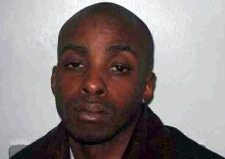It could almost be a scientific experiment.
Take one murder case, subject it to three trials, each with different juries, and await the results. Would you expect the verdicts to be the same?
This actually happened to Anthony Carter, a 37 year-old man who was suspected of shooting a hotel waiter dead during a £50 ‘drug deal gone wrong’ in Tottenham in 1998.

Carter was linked to the crime by his DNA found on a baseball cap found clutched in the victim’s hand at the scene and an alleged confession he made to his ex-girlfriend ten years later. He was not identified by eyewitnesses and he denied being the gunman.
His defence was that his cap had gone missing some time earlier and that his former partner was being vindictive to get full control of their child.
Carter first went on trial in January 2009 but the jury was unable to reach a majority verdict and was discharged.
The retrial began in June 2009 and this time he was convicted and jailed for life with a minimum of 20 years behind bars.
But the story didn’t end there.
Carter’s lawyers appealed the decision of the trial judge to allow the jury to be told of a conviction for possession of a gun after the murder took place. The appeal court directed that he be tried a third time, this time without mention of that information.
At the third and final trial in November 2010, Carter was cleared of murder by the jury and left court a free man.
Three different juries, three different verdicts.
We are not allowed to know what goes on in a jury room so exactly what influences their collective decision is unknown.
However the jury was not the only variable in this experiment. The third trial was overseen by a different judge, presented by a different prosecutor and took place in a different courtroom. No doubt the accounts of the witnesses and even the defendant at court varied slightly.
And perhaps the knowledge that Carter had handled a gun, even if it postdated the crime, may have tipped reasonable doubt into certainty of guilt.
But if this case reveals anything, it is how one decision made by 12 members of the public can completely change a life. It is perhaps for this reason that some people want to do away with juries altogether.